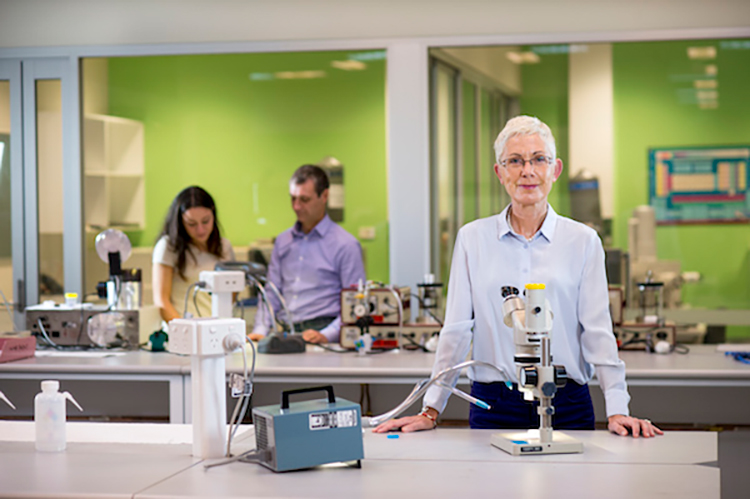Researcher Highlights
Predicting the future by uncovering the past
Associate Professor Silvia Frisia
The University of Newcastle's Associate Professor Silvia Frisia refers to herself as a storyteller rather than a scientist and expresses a great admiration for scientific minds such as Leonardo da Vinci whom she describes as 'my favourite genius'.

"He was good at everything. He could write very well, he was an excellent painter, he was an engineer and architect, he was a geologist and a botanist! I think what made him so good was actually quite simple – he was an observer."
Associate Professor Frisia joined the University of Newcastle in 2007 after many years working internationally and brings with her a strong reputation for collaboration, something she is keen to ensure her students embrace.
With increasing climate and environmental challenges, Associate Professor Frisia's work within Earth Sciences employs cutting edge technologies to attempt to reveal more about the history of the earth and also the history of humans. More recently, this work has taken herdeep within a cave in Italy to help extract the oldest Neanderthal DNA yet recorded.
"This man lived over 130,000 years ago and is an incredible find, however radio carbon dating is only useful to within the last 50,000 years and other techniques we could have employed were too destructive. Thus, we had to use the calcite crust encasing the body to get the age"
Using our Australian Synchrotron and others located all over the world, Silvia's expertise involves the examination of crystal structures and their elemental composition to dig deep into the past and find information about how the environment changed across cold and warm periods.
"Understanding the earth's physical past helps us understand the human story. Changing climate is just one part of a series of complex, interlocking processes."
Future areas of research for Associate Professor Frisia include possible investigation of climate information from Australian cave formations, ongoing work in the Cook Islands with a particular focus on how governments may devise adaptation strategies from information in relation to past events when there were serious climate changes.
Increasingly she is encouraging her students to strive to be competitive within the international environment and to enjoy the process."We're building up a team with collaborations not just in Australia but internationally, so I want to provide students with a way of thinking logically and independently and ultimately be able to write a great story."
The University of Newcastle acknowledges the traditional custodians of the lands within our footprint areas: Awabakal, Darkinjung, Biripai, Worimi, Wonnarua, and Eora Nations. We also pay respect to the wisdom of our Elders past and present.
